Unification of Germany
by Devender
0 2718
19th century featured Europe's struggle for independence and national unification. It also witnessed the independence of Greece and Belgium from their rulers, another thing that came into existence during this period was Germany and Italy rose as united independent states.
In 18th century, Germany was divided into many states. However, the Napoleon wars did end the boundaries for many states but still, 38 states remained out of which Prussia was the biggest and powerful. The conditions in Germany were similar to that of Feudal system. The landlords were Junkers in Germany, They were the ones who controlled all the affairs in the states.
Unification of Germany
The German people also started demanding democratic governance and reforms regarding economy shortly after the French Revolution. Nationalism also played a huge role as it inspired people to demand the unification of the states. All this led to the formation of the German confederation in 1815.
The confederation included only some parts of Austrian and Prussian Empire and some German states but larger parts of Austrian and Prussian empires were not included in it. The main aim of confederation was to make economic policies for the members but still it failed because of the mentioned reasons:
- All the states tried to assert its leadership over other
- 1848 Revolutions for establishment of Democracy
- Rivalry between Austrian and Prussian states to dominate all the affairs
These were the main reasons behind the failure of the confederation.
1848 was the year of revolution led by workers in most parts of Europe demanding the establishment of democracy. The same year revolts started in German states to overthrow the present political system of monarchy rule and rulers were forced to permit democratic government. A new constitutional assembly was formed that decided to met in Frankfurt to unite all the German states and draft a new constitution.
The Prussian King declined to the proposition of a constitutional government for joined Germany. Meanwhile, the rulers bobbed back and began the restraint of the patriots. Subsequently, the rights conceded so far to conciliate the patriots were removed and the government of Prussia arose the strongest.
Unification under Bismarck
The unification of Germany was still to happen however not under a vote based government but rather under the iron hand of Bismarck, military leader of Prussia. His strategy was to safeguard the interests of privileged and the mastery of Army in issues of the State.
Bismarck followed the approach of Blood and Iron under which he pressured the states into harmony. Point of the approach was to join Germany under the Prussian Monarchy and this necessary cutting down the German Confederation.
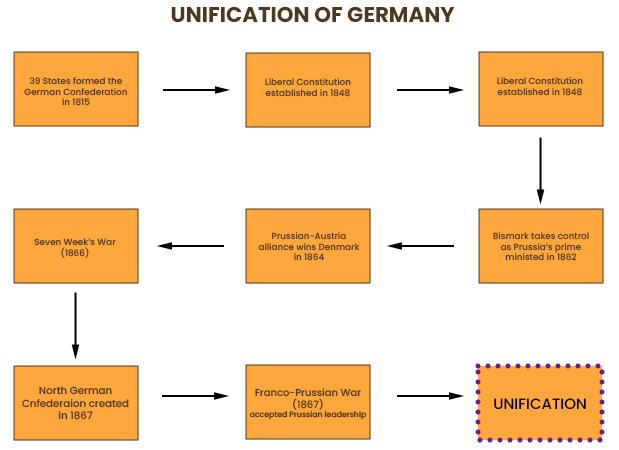
Bismarck's Prussia originally battled a conflict in 1864 in collusion with Austria against Denmark to add-on the greater part of the domain of German Confederation. At that point he aligned with Italy in 1866 to crush Austria and eliminated it from the German Confederation. Therefore the actual Confederation was finished.
In 1867, Bismarck created the North German confederation which united 22 German states but still excluded the southern German states and made the Prussian king the hereditary head of the state. In 1870 French government was tattering and conditions were ready for another upset for foundation of a vote based republic.
The French King Louis Bonaparte pronounced war on Germany in 1870. He needed to utilize a conflict triumph to redirect consideration of people in general and to utilize the resulting war gains to loan validity to his system. The outcome was that France was crushed and it proclaimed itself republic in 1871.
The war victory allowed Bismarck to get rest of the German states in to United Germany. Therefore, Franco-Prussian war of 1870 led to final unification of Germany.

Share:

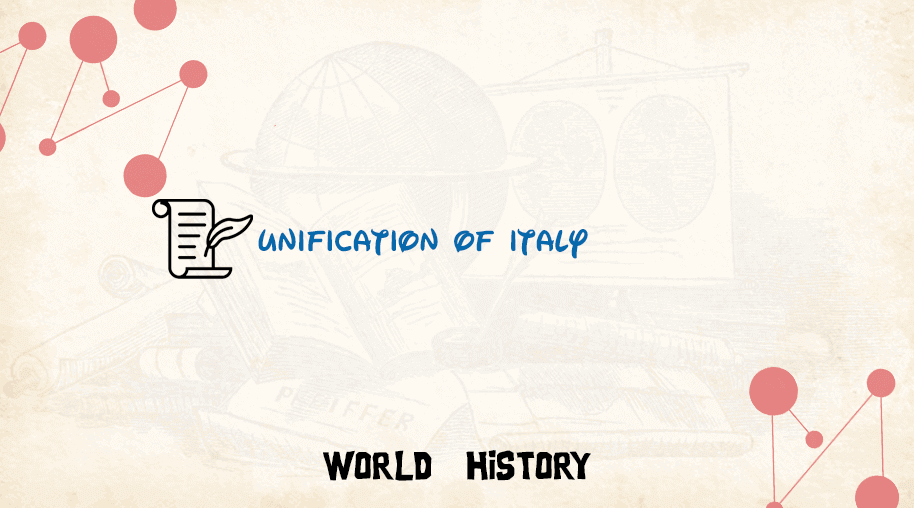
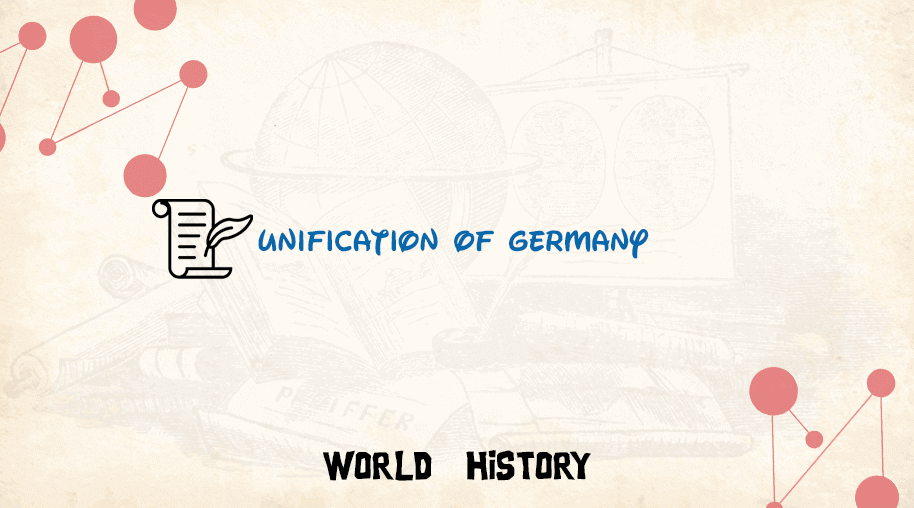
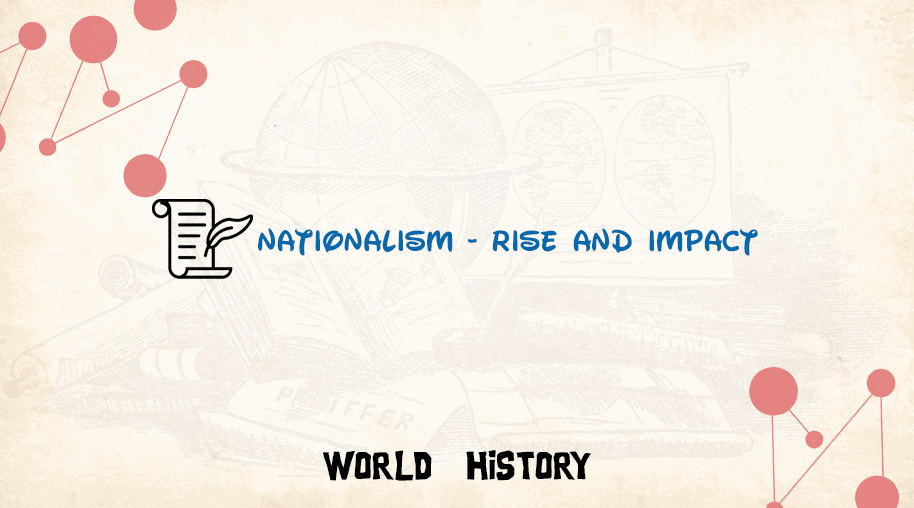
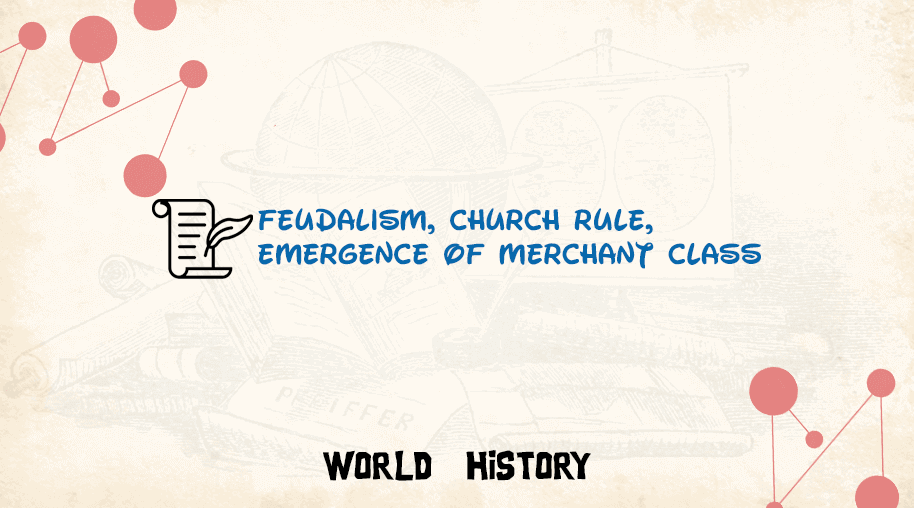


Comments
Waiting for your comments